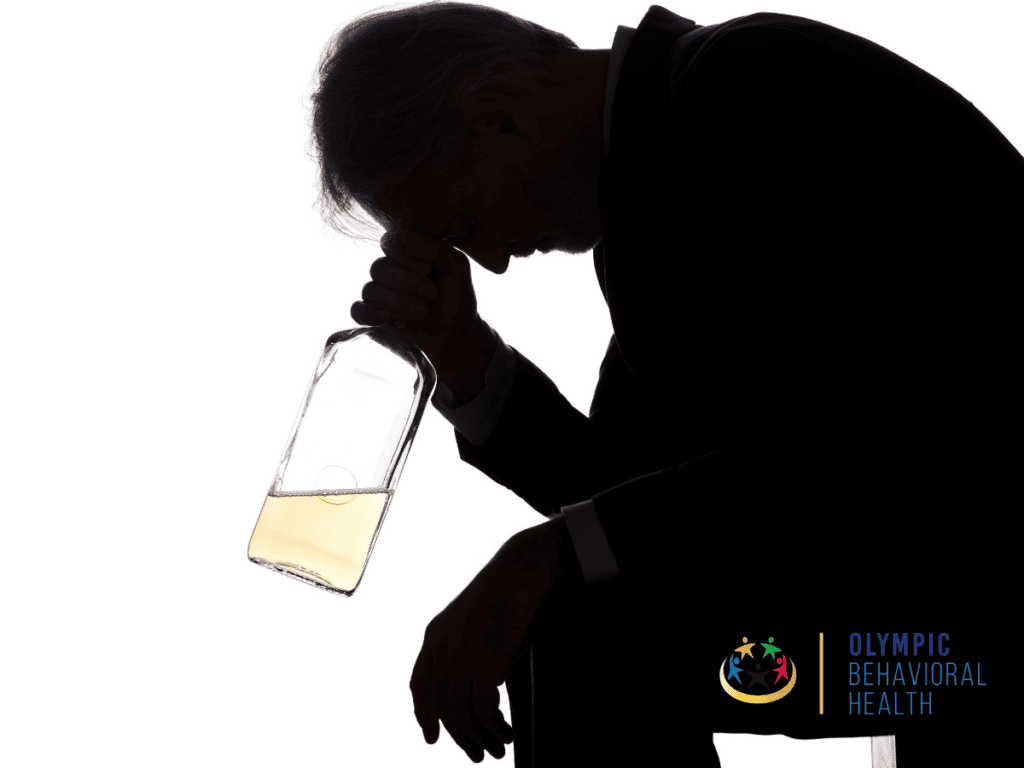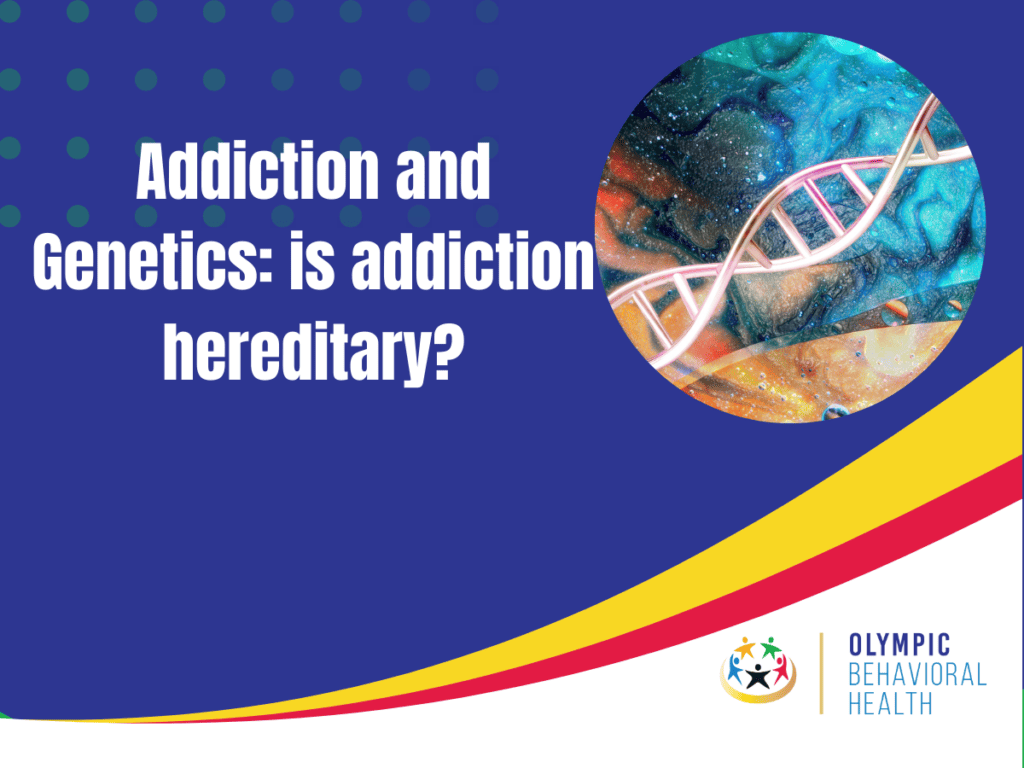At least half of an individual’s vulnerability to alcohol or drug addiction is associated with genetic factors, according to the American Psychological Association. This claim is supported by the National Institute on Drug Abuse, which asserts that 40 to 60 percent of an individual’s risk of addiction is determined by genes and environmental stressors, establishing that genetics play vital roles in addiction.
Most studies have consistently shown that people whose parents or other family members have addiction issues are more susceptible to addiction themselves. Hence, it becomes imperative for anyone with a family history of substance abuse to be very cautious.
However, genetic disposition is not a certainty of occurrence. This necessitates understanding how vital the other half is in addiction’s development so that the full context of all contributing factors is put in perspective. The other factors that determine addiction include: environment and trauma.
What Does It Mean for a Condition to be Hereditary?
All conditions passed from one generation in a family to the next are known as hereditary conditions. It is a biological transfer of conditions. For example, the presence of a defective gene in an individual’s DNA causes health problems like sickle cell anemia and down syndrome. Some of the conditions inherited are mild while others are very serious, although not necessarily a death sentence. Now, how does addiction fit in here?

Is Addiction Hereditary?
According to NIH (National Institute on Drug Abuse), addiction is a disorder that causes functional changes to a network of neurons in the brain that play key roles in stress, reward, and self-control. The American Psychological Association, the Institute of Medicine, and the American Medical Association all agree with the definition of addiction as a brain disease.
Some families seem to have consistent addiction issues, seemingly validating the hereditary claim of addiction but addiction is, in fact, not a hereditary disease, at least not like the likes of sickle cell anemia and down syndrome. Unlike other heredity conditions, the hereditary nature of addiction does not mean inevitability. Other factors like environmental and social influences will still contribute significantly to whether you use drugs or not.
However, it does have a genetic predisposition which is the ground for the hereditary connection. For example, some studies carried out on both laboratory animals and humans have consistently shown that genetic factors are major players in the development of alcohol addiction. Similarly, the American Academy of Child and Adolescent Psychiatry reported that children whose parents are alcoholics are at least four times more susceptible than other kids to end up alcoholics themselves.
The Hereditary Aspect of Addiction
To discuss the hereditary aspect of addiction in this section, the substance of focus is alcohol. It is, however, informative and sufficient for generalization to other drugs because the processes are similar.
An individual’s risk of developing AUD (Alcohol Use Disorder) is influenced by multiple genes. Some of these genes increase the propensity for AUD while others decrease it, whether directly or otherwise. Race and ethnicity also play key roles here. For instance, a gene variation that affects the rate of alcohol metabolism is seen in some Asians. As a result, alcohol consumption leave them with symptoms like fast heartbeat and nausea, hence they tend not to favor alcohol consumption. This is essentially a form of protection against AUD.
A Swedish publication reported, following studies of families, twins, and adopted children, that twins (raised separately) who were exposed to alcohol by their adoptive parents showed a little above average rate of alcoholism, while those with biological alcoholic parents showed significantly higher rates. Similar studies reported consistent results.
Genetic Sensitivity and Addiction
Two strains of mice, one strain was acutely sensitive to alcohol while the second strain was not genetically sensitive to alcohol, were exposed to similar amounts of alcohol. The behaviors of the mice were significantly different, bringing about the conclusion that if it’s possible to genetically select for these traits, then there are genetic bases for the trait.
Genetics and Alcohol-Associated Diseases
As stated above, genes that influence alcohol consumption do so by either reducing the overall risk by reducing drinking or increasing the risk by enhancing drinking. People whose genes reduce drinking but still become heavy drinkers face a higher risk of addiction and addiction-associated diseases. The following diseases are found to be related to alcohol consumption:
• Cardiovascular issues
• Pneumonia
• Some cancers
• Tuberculosis
• Cirrhosis
• Digestive issues
• Mental health disorders

Can Genes Affect Alcohol Addiction Treatment?
Some drugs, e.g. Naltrexone, are being used for the treatment of alcohol addiction. They help some people to reduce alcohol consumption but, unfortunately, do little to nothing for others. According to research, the different results are due to the presence or otherwise of a specific gene. Therefore, the treatment of alcohol addiction is different from one person to another, and the understanding of how genes influence outcomes of treatment is important. More will be known in this regard as research is ongoing by scientists, globally.
Addiction Research and Genetics
Numerous genes, chromosomes, and circuits in the brain that are deemed to enhance the risk of addiction have been identified by researchers, according to the National Institute on Drug Abuse. Additional pathways can quickly and more easily form in the brains of people with a family history of drug or alcohol use.
While impressive work has been done by experts, more research is still ongoing to improve the understanding of this subject and ultimately bring about better treatment options.
What is an Addictive Personality?
Addictive personality is usually used to define the interplay between genetic predisposition and an individual. It is, however, much more complex than this. There hasn’t been evidence that any specific personality type is linked to addiction, directly or indirectly, though some personality types are considered to increase vulnerability to an addiction. Similarly, bipolar disorder or anxiety disorders increase the risk of drug and alcohol abuse.
Is Addiction Treatable?
Since it has been established that heredity plays a part in addiction, it is then appropriate to ask if it is treatable because hereditary conditions are generally not treatable, they are rather managed. As explained above, the hereditary connection of addiction is different. It is treatable, with about 60% of people with addiction problems breaking free, according to research. Therefore, addiction isn’t a terminal disease for most people.
There are various treatment techniques experts use to help people with addiction problems. In the same vein, specific types of treatment are designed to handle genetic connection with addiction. Cognitive therapies are typically part of the treatment process, involving the identification of the path of addictive tendencies and coming up with methods and mechanisms for managing triggers and urges.
The treatment plan that works for person A may not work for person B, even if they were exposed to the same or similar substance. Hence, it is imperative to work with professionals who can study the peculiarities of each person and recommend specific treatment for specific needs.
How Should Family Members Handle Genetic Associated Addiction?
The first thing a family with a history of substance abuse must do is be transparent and honest among themselves. This way, experiences are shared and help provided if required. Shame has been a big issue in this step in families but there is absolutely nothing to be ashamed of, especially as it is a shared concern.
Protective factors: once the reality of the risk of addiction has been understood by family members, establishing protective factors is the next step. While risk factors talk about vulnerability, protective factors are measures put in place to reduce the risk, e.g. providing proper supervision for young people.
Share your struggles and triumphs: one of the best ways to demystify the generational substance abuse problem is by sharing your journey to triumph. When done properly, it serves as a template for others.
Family health portrait: create a portrait indicating the health challenges peculiar to the family, because every member of the family is entitled to know the things that may affect them (physically, emotionally, and mentally). The National Institutes of Health has confidential resources you use for this purpose.
What Factors Contribute to Addiction aside from Heredity?
Environmental
Environment holds a very crucial role in the propensity for individuals for addiction. Different environmental conditions are listed below:
Early childhood interactions within the home or family: children raised in a home with people who misuse drugs or alcohol are significantly more susceptible to behavioral problems, leading to substance abuse.
Peers and friends: peers and friends are as strong an influence as family members, if not more. Young people are strongly driven to fit in, hence they often try things out to feel accepted among friends. Lack of proper supervision, community poverty, and inadequate social skills play key roles in this.
Trauma
According to research, people (especially children and adolescents) who have encountered trauma have an increased chance of addiction. Our ability to be dauntless in the face of challenges is adversely impacted by trauma. Therefore, the risk of substance abuse is higher. The risk is even higher for people with a predisposition for addiction.
What are ways to prevent a drug or alcohol overdose?
There is no definitive way to prevent a drug or alcohol overdose, but there are some steps that individuals can take to minimize their risk. These include being aware of the signs and symptoms of an overdose, avoiding mixing substances, using drugs or alcohol in moderation, and seeking help for addiction.
Additionally, having a support system in place and practicing self-care can also help individuals better cope with cravings and triggers. In some cases, medication-assisted treatment and therapy may also be recommended. For more information on addiction treatment and prevention, check out our article on.
Can food addiction also be hereditary?
While there is some evidence to suggest that genetic factors can play a role in food addiction, it is not yet fully understood whether food addiction can be hereditary. Some studies have shown that certain genes may be associated with a higher risk of food addiction, while other factors such as environment and psychological factors also play a significant role.
In fact, some researchers argue that labeling food addiction as purely genetic oversimplifies a complex issue and could undermine the importance of addressing other contributing factors. To learn more about food addiction in florida, check out our article.
Get help for your Addiction
Addiction Treatment at Olympic Behavioral Health offers help and support for those struggling with addiction. Taking the first step can be difficult, but it is crucial to call for assistance. Our facility in West Palm Beach provides comprehensive addiction treatment programs to guide individuals towards recovery. If you or your loved one is battling addiction, reach out to Olympic Behavioral Health today.

Share This Post



